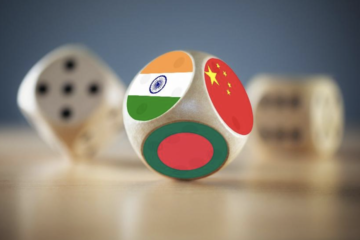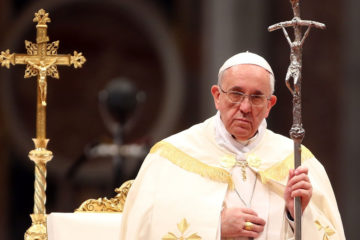One of the latest global menaces to territorial integrity takes the form of Venezuela’s threat to ‘reclaim’ Essequibo, a region comprising two-thirds of Guyana. Beginning in October, the escalation of a nearly two-hundred-year-old dispute by President Maduro has gathered attention from the UK and the US who have both expressed support for Guyana. Russia, on the other hand, is known to be a strong supporter of Venezuela. By contemplating Argentina’s failed Falklands invasion, Maduro stands to learn a lot about the dangers of following through on his threat.
On 3rd December, a referendum was held in Venezuela regarding the sovereignty of Essequibo. Caracas claims that 95% of Venezuelans voted in favour of all five questions, including “the creation of the Guyana Esequibo state” and the rejection of the International Court of Justice’s jurisdiction on Guyana’s sovereignty. Venezuela’s authoritarian president Nicolás Maduro, the successor of Hugo Chavez and proponent of the eponymous ‘chavismo’ proceeded to redraw national maps and instructed state companies to exploit the oil, gas and mineral reserves of Essequibo’s Special Economic Zone (SEZ). A senior Venezuelan politician also shared a video of locals in Essequibo raising the Venezuelan flag.
The UK showed support for its previous colony Guyana by temporarily deploying HMS Trent to the area. However, in February, images from the Centre for Strategic and International Studies in Washington showed Venezuelan troops accumulating on the border, despite having agreed to not use force in December. The Guyanese president, Irfaan Ali, described the moves as “direct threat(s) to Guyana’s territorial integrity, sovereignty and political independence”.
The Essequibo region itself is largely a hinterland forest area accompanied by a complex colonial past. Originally part of Venezuela during the Spanish colonisation, it has a population of 125,000 who view themselves primarily as Guyanese. Venezuela has disputed the border since 1841 – when Britain concluded ownership of the Essequibo region after the discovery of gold and subsequent influx of British settlers – but in 1899 British Guiana was granted Essequibo by arbitrators from Russia, Britain and the US. In 1970, Guyana achieved independence and throughout the latter half of the 20th century, Venezuela brought the claim to Essequibo to the United Nations, which was negotiated with negligible results. The tensions arose once more in 2015, when the Stabroek Oil Block was discovered by US giant Exxon Mobil in what would be Essequibo’s Special Economic Zone.
It is widely agreed that this sudden decision from Maduro is a last-ditch attempt to rescue his suffering popularity ahead of the presidential elections this year. Inflation reached 63,000% in 2018 under Maduro, GDP has fallen to $98bn from $373bn in 2013, and the government is being investigated by the International Criminal Court for suspected crimes against humanity. Further, the barred opposition candidate, María Corina Machado, is performing well, with a recent Survey of the Andrés Bello Catholic University finding that “85.2% of Venezuelans want a change of government”. However, the coming elections in July of 2024 are unlikely to be democratic and represent the true preference of the population.
It is difficult to resist drawing parallels between Venezuela’s attempt to reclaim Essequibo with Argentina’s actions in 1982, when the struggling military junta invaded Las Islas Malvinas (The Falkland Islands). Following the military coup of 1976, the junta began what is now called the ‘Dirty War’: killing up to 30,000 people and implementing a system of 300 secret prisons. Between 1974 and 1980, Argentina’s Gini Coefficient exploded from 0.34 to 0.39. Faced with huge domestic political pressure and growing economic woes, President Galtieri ordered the seizure of Port Stanley, the capital of the Falklands, banking on the UK’s non-response and seeking to leverage populist sentiments to gain political support. Instead, a 74 day-long vicious battle ensued, resulting in the losses of 650 Argentinian and 255 British troops.
What’s more, the Venezuelan administration is experiencing many of the same internal tensions that plagued the Argentinian junta in 1982. Alongside typical political infighting we expect when a state faces such stark economic challenges, Argentina’s then President clashed with other military leaders whilst attempting to lift the national state of emergency, declared when fighting guerrilla groups in the previous decade, which gave special powers to the military. Today in Venezuela, over 7.7 million have left the country which, alongside the previously-discussed financial difficulties, have thrown the country into turmoil. Moreover, the opposition party has managed to resolve internal conflicts and now presents a genuine symbol of opposition against the regime, having won Barinas State in 2022 – Chavez’ homeland and historical party bastion. A military failure could be the final straw for the security of the government.
A vital difference in this case, however, is the vast superiority of the Venezuelan armed forces compared to those of Guyana. Venezuela has approximately 80,000 active-duty personnel, dwarfing Guyana’s mere 3,000 which is in stark comparison to 1982, when Argentina had stationed only 10,000 poorly-trained conscripts on the Falklands. Still, Lord Cameron has reaffirmed the UK’s “unequivocal backing “ to Guyana, although this is likely to involve basic military support, limited by political pressures to prioritise aid to Ukraine and Israel-Gaza. Further increasing the tension, Venezuela is backed by Russia and – depending on the situation in Ukraine – may be aided by private armies such as the Wagner group.
It should also be acknowledged that Venezuela would have huge financial gains from an annexation: the Stabroek Oil Block is estimated to contain over 11 billion barrels, generating 1.2 million barrels per day by 2027, worth over $40bn. This is also in contrast to the invasion of The Falklands, which was built primarily on a sentimental principle of reclaiming what Argentinians saw as their land.
Furthermore, while Maduro’s reputation for issuing bold threats without subsequent action is widely recognized both domestically in Venezuela and internationally, the heightened troop buildup implies a potential shift in his approach. This could be influenced by Russia’s recent invasion and the realisation that global oil shortages could deter significant powers from enforcing sanctions. Indeed, the US recently lifted sanctions on Venezuela, and granted Chevron a special licence to drill oil in the region, to increase global supplies.
For the Argentinian junta, the Falklands conflict is widely seen as marking the beginning of the end: President Galtieri was forced to resign only 3 days later, beginning Argentina’s transition to democracy. The surge of Argentinian patriotism that was anticipated (and took the form of street dancing in the early days of the invasion) soon dwindled and demonstrators took to the streets. Galtieri’s gamble for popularity had backfired and The Falklands seem unreachable today. What’s more, Margaret Thatcher went on to win a huge landslide for the Conservatives, ironically having successfully converted patriotic support into votes, as Galtieri was hoping to when he invaded.
It is certain that should Maduro choose to invade Essequibo, there are marked differences between his campaign and that of Argentina in 1982: Venezuela’s military dominance and its economic impetus for invasion should not be overlooked. Still, due to certain similarities, Maduro should exercise caution: what may appear as an easy military victory could become a repeat of 1982, marking the beginning of the end for his regime and ‘chavismo’ as a whole.
Lucy Stefaniuk is a student at the London School of Economics and a correspondent with the London Globalist’s Latin America Desk.


